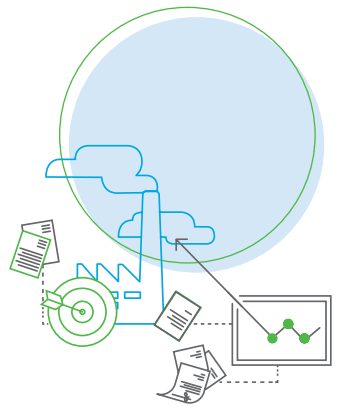ifm is a global manufacturer that specialises in industrial automation and sensor solutions.
It has transformed as a company from being a manufacturer itself, and now helps others do the same.
Australia Managing Director, Dave Delany said traditionally they had manufactured other products, but moved to creating products to solve process problems.
“We had the same problems that all other manufacturers had, and that’s why we went into the software, to solve the problems we saw in our own production,” he said.
“Then we turned that into a saleable product. We still manufacture all our sensors.” With a strong focus on technology and quality, the German-headquartered ifm offers a range of smart products to improve efficiency, helping to support increases in safety and sustainability at the same time. Their sensors have been employed in plants and machinery around the world, in infrastructure, defence, energy, agriculture and health.
In Australia, ifm worked with a port operator at the Port of Melbourne to improve the efficient operation of cargo loading and unloading. Specifically, the operators introduced the use of ifm sensors on cranes to monitor and detect hazards, reducing the risk of collisions and raising safety and productivity. Most of their work, however, is providing smart solutions, which provide data-based insights to small and medium end users. ifm has also worked with a globally leading machine manufacturing company to provide automation devices.
Managing Director Dave Delany said Australian SME manufacturers were in a good position to capture the opportunities of emerging and changing global markets, given their flexibility and capacity for innovation.

“Because of Industry 4.0, it has given us the ability to be competitive and to make the savings to be more efficient,” he said.
“The Australian manufacturing industry is very innovative. They can tap into markets that are new, or be a lot more flexible than some of the big organisations that are overseas. Some of the companies overseas are so large and they’re just geared up to do one thing.
“Consumers are wanting a lot more customisation. So that flexibility, to be able to cater more to people’s personalised needs, as smaller manufacturers we are more flexible.
Take an insider’s look behind-the-scenes of Australia's dynamic manufacturing landscape.
The manufacturing sector in Australia is evolving, with a shift in focus from traditional industries like metal products and textiles to high-value areas such as health, defence and energy, particularly post-Covid-19.
With insights from industry trailblazers and seasoned manufacturing business specialists, this report will take you on a journey through the trends, challenges and innovations shaping the future of Australian manufacturing.





